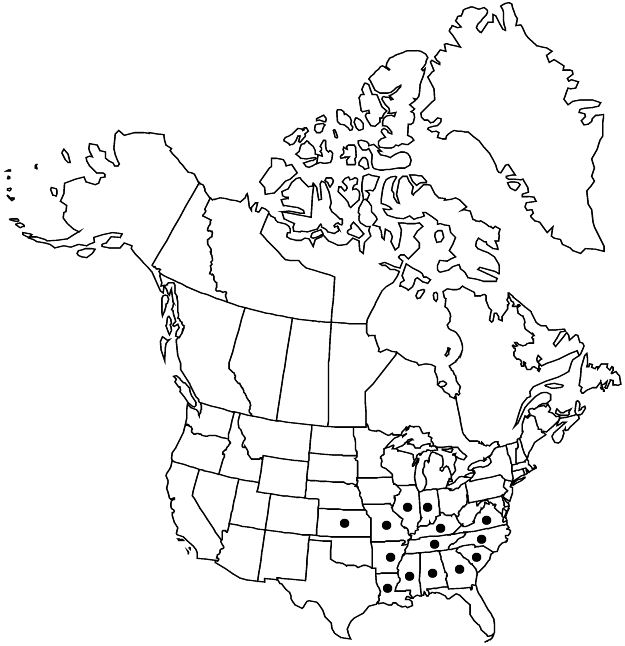Difference between revisions of "Crataegus collina var. collina"
FNA>Volume Importer |
FNA>Volume Importer |
(No difference)
| |
Revision as of 23:14, 16 December 2019
Leaf blades rhombic-obovate or broadly rhombic-elliptic to narrowly obovate, 3–6 cm, 1/3–1/2 full grown at anthesis, length/width = 1.4–1.7, membranous (young) to chartaceous or subcoriaceous (mature), lobes 0, or 1 or 2 per side, max LII 10%, lobe apex acute, margins crenate to serrate, teeth 0.5–0.8 mm, apex subacute to obtuse, adaxial surface matte or lustrous, densely short-pubescent young. Inflorescence branches hairy. Flowers 14–18 mm diam.; stamens 20, anthers white or cream.
Phenology: Flowering Apr–May; fruiting Sep–Oct.
Habitat: Pastures, fencerows, scrub, open woodlands
Elevation: 10–500 m
Distribution

Ala., Ark., Ga., Ill., Ind., Kans., Ky., La., Miss., Mo., N.C., S.C., Tenn., Va.
Discussion
Crataegus collina is recorded from Oklahoma without variety, probably var. collina.
Variety collina comprises three forms. The two predominant forms are thin-leaved. The first, most resembling the type, has leaves more obovate with lobes absent and marginal teeth smaller and obtuse; the second has narrower leaves, more like var. succincta but somewhat broader, with 2 or 3 acute lobes per side and marginal teeth sharper. Both are widespread. The third, C. sucida, from Missouri, is distinguished by leaves that are more or less obovate, subcoriaceous, with lobes absent, sharply and evenly toothed with teeth 1 mm.
Selected References
None.